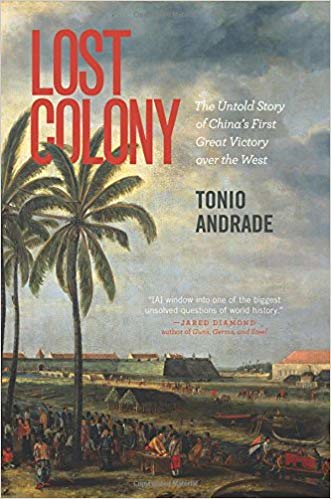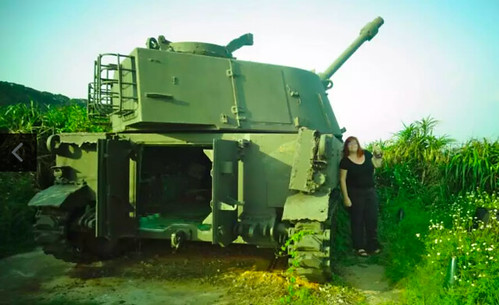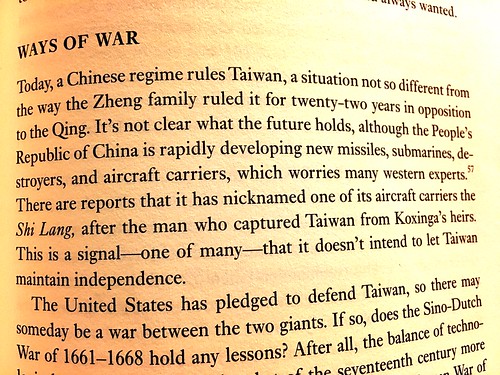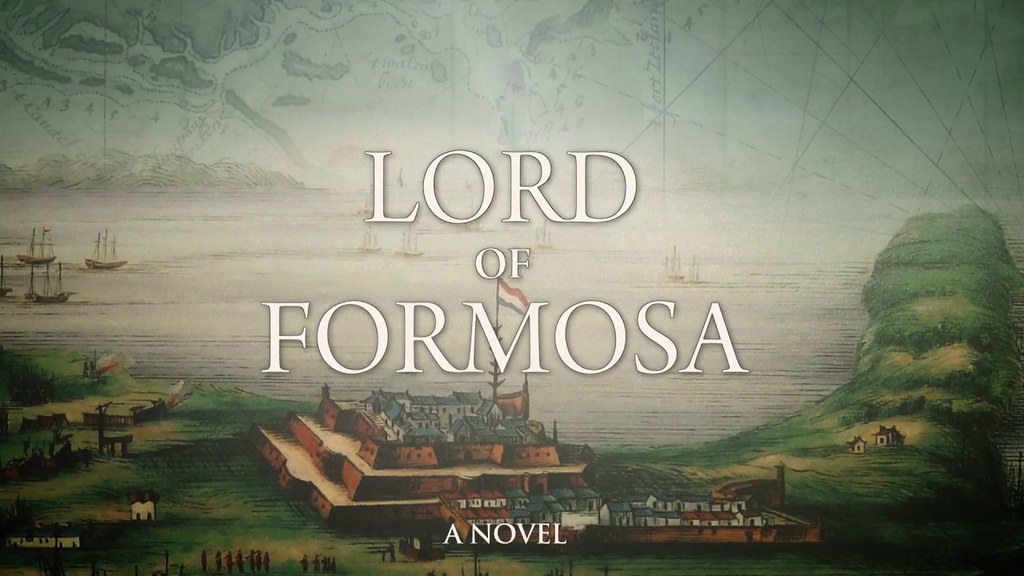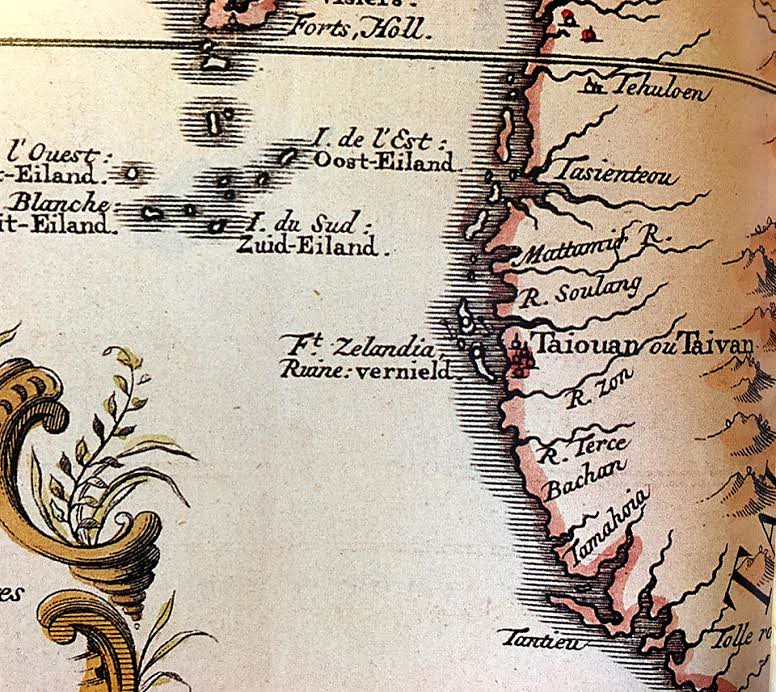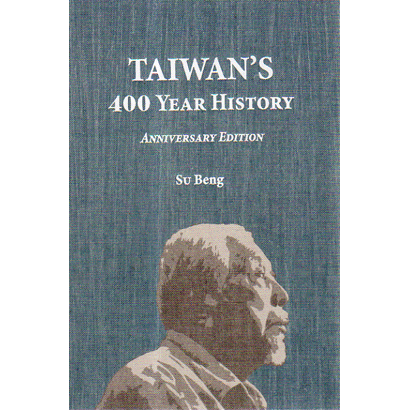
I bought the anniversary edition of Taiwan's 400-Year History at Su Beng's 100th birthday celebration on Ketagalan Boulevard a few years ago, but having already read up on Taiwanese history, I hadn't actually read it. I knew Su Beng's life story - the whole Taiwan-Japan-China-Taiwan-Japan-Taiwan saga of it. I knew that he was not only beloved almost universally among active supporters of Taiwanese independence, but that he'd been much 'redder' in his youth (that is, Marxist/leftist, not pro-CCP).
So, of course I knew the story of the writing of this book: penning it after work in his Tokyo noodle shop, with the sense that Taiwanese should know their history. They should have access to a historical narrative that the KMT was trying to eradicate in Taiwan itself. I was aware copies were banned in Taiwan itself, and it had to be smuggled in (I had not known, however, that Nylon Deng had been the one to do the smuggling, according to one of the prefaces of the book).
When he died earlier this year, I regretted not reading it earlier, and picked it up as a tribute to one of the greats. The English edition is heavily abridged from the Chinese - one slim volume instead of several fat ones - so it didn't take long.
Having finished it, I'm not sure what to say exactly. I guess I'd say this: this may be a history book, but these days, you don't read it to learn history. You read it to understand Su Beng's perspective on Taiwan's history.
That wasn't always true: when the text first became available to Taiwanese, it was so different from the China-centric narratives peddled by the KMT that it must have felt like after years of gaslighting, Taiwan was finally charged with electricity.
For those who felt no connection to China and had been bored in school learning about "other provinces", learning about their national history as one of colonialism - including calling the current regime "colonizers" - I cannot imagine how empowering and enlightening it must have been. Even though 'Taiwanese history' is more broadly accessible now and covered from a range of perspectives, we still read it now to understand more deeply what that initial rush of Aha! This is who we are! would have been like.
A few things stand out in this book: the first is that Su Beng structures his narrative not strictly linearly (though the sections are ordered in a broadly linear way), but rather telling history as a way to make points about class warfare: the KMT and other colonial oppressors such as Japan, the Qing, the Zhengs and the Dutch and the wealthy Taiwanese who backed them, and the oppressed. That is, the proletariat, or working Taiwanese, with a focus on Hoklo Taiwanese. Although indigenous people are mentioned and, to put it charitably, Hakka people are not 'excluded' so much as not differentiated from Hoklo. Hey, I told you he'd been more Marxist in his youth.
That's why you read it, to be honest. Using words like "vile" and "evil" to describe the oppressors (and I agree, they were oppressors and in many cases still are), and "hardworking" and "from their blood and sweat" to describe the indigenous and working-class Taiwanese farmers, you aren't reading straight history so much as an extended editorial on Su Beng's particular perspective on it.
Is that such a bad thing, though? While it's perhaps not ideal for the first 'history of Taiwan' that Taiwanese might read to 'know their own history' to be so ideological, is anything non-ideological? Would a straight history, without emotionality and strongly connotative adjectives, have been as engaging as Su Beng's editorial style? Would a text that aimed to be more objective have simply hidden its ideological bias better? At least Su Beng didn't pretend to believe anything other than what he truly believed in order to seem 'neutral'. That sort of honest critical perspective is actually kind of refreshing.
The second, to me, is a bigger problem: the English edition is so abridged as to make you wonder what was left out. This is exacerbated by the fact that several parts are highly repetitive. Thanks to the semi-non-linear structure, sometimes that repetition occurs across chapters. I understand that this is a stylistic feature of Mandarin and was surely present in the Mandarin edition (I think the Japanese edition, however, was the original), but for an abridged English edition, it might have been smart to cut it in favor of more content.
Here's an example. Towards the beginning, the chapter on Dutch colonialism in Taiwan includes several paragraphs that state, in different ways, that the wealth the Dutch extracted from Taiwan was created by the hard work of Taiwanese laborers. That theme is repeated - with the same wording - in the chapter on Qing colonialism, when discussing how it was hard-working Taiwanese farmers who opened the land to agriculture. Then, later in the book, there's a throwaway line about how Lin Shaomao "gave his life for his nation", with absolutely no backstory. Now, I know who Lin Shaomao was, but someone who didn't wouldn't learn his story from this book.
In several places, this or that specific person, or group, is accused of being evil, thieving, bourgeois...whatever. Some names were familiar to me; others I had to look up. They probably were, and I love that Su Beng pointed fingers and named names, but no background is provided. No buttressing of the argument. No support. They're evil, these other people are good, and that's it. I don't know if those details are present in the longer original, but the academic in me wants to scream at its absence in English.
Of course, early Taiwanese readers would probably already know who those people were, and reading the names of people who had probably been portrayed as wealthy community leaders and scions of industry being called thieving compradore collaborators and oppressors must have felt like the surge of a new zeitgeist.
This makes me wonder - why was it cut down so much? Was the original so repetitive that you basically get the point from the abridged English edition, or do they think foreigners don't care and don't need the details? I'm not sure. It doesn't help that the English has several typos and at least one wrong fact (saying Magellan died in Manila, when in fact he died in Cebu) that I hope are corrected in a future edition.
This leads to the deepest problem of all: sometimes Su Beng's ideology gets in the way of good history. I'm sorry, you old hero, but it's true (and I think Su Beng as an older man who was more pink than red might actually have agreed).
Towards the beginning, though the theme also echoes later in the book, Su Beng characterizes the class struggle as indigenous Taiwanese and Hoklo (and Hakka) farmers and laborers as 'the oppressed', who struggled against consecutive foreign governments and wealthy local 'oppressors'. Without using these words explicitly, he implied strongly that these oppressed groups made common cause in fighting against their aristocratic and bourgeois oppressors.
And I'm sorry, Su Beng, I don't care how 'Marxist' or 'revolutionary' such a reading of history sounds. It's just not true. Hoklo farmers and laborers treated indigenous Taiwanese just as badly as the wealthy ruling classes and landlords. They were just as oppressive and, frankly, racist. What those wealthy oppressors said about indigenous people, laboring Hoklo bought and upheld. They weren't very kind to the Hakka either.
It does no favors to anyone to pretend that wasn't the case.
Later in the book, he goes so far as to say that wealthy Taiwanese 'compradore' families could not be considered 'Taiwanese', as they were in the pockets of the wealthy KMT diaspora. While the latter is true, the accusation of not being Taiwanese reeks of a 'No True Scotsman' fallacy. If you decide that Taiwanese bad guys aren't Taiwanese, implying that all Taiwanese are noble-hearted and support a certain vision of Taiwanese identity, you take away the chance for Taiwan to reckon with the fact that as a nation and society, it has assholes just like everywhere else. And if you don't reckon with it, you can't do anything about it.
That's not to say that the book is a total failure. I appreciated that unlike Ong Iok-tek in Taiwan: A History of Agonies, Su Beng never uses derogatory language to describe indigenous people. Understanding the mid-life thinking of one of the greatest Taiwan independence activists is a worthwhile activity, and it does help one understand how Taiwanese identity has such a strong leftist/Marxist component (when you'd think those who support a free and independent Taiwan would be wary of anything that had even a whiff of Communism about it). The prefaces and postscripts are interesting as well.
In other words, do read it. But don't think you're reading it to "learn history" - anyone who has a general concept of Taiwanese history already isn't going to learn anything new from it, and in any case it's not so much a history as a very long op-ed. As a narrative of the past 400 years, it leaves a lot to be desired, and yet it was a powerful touchstone at the time - a piece of literature more than an academic work. As a cultural artifact, it's fascinating.
Read it so you can get a sense, even if it's hard to recapture in 2019, that sense of the first lamps of Taiwanese consciousness being lit.

